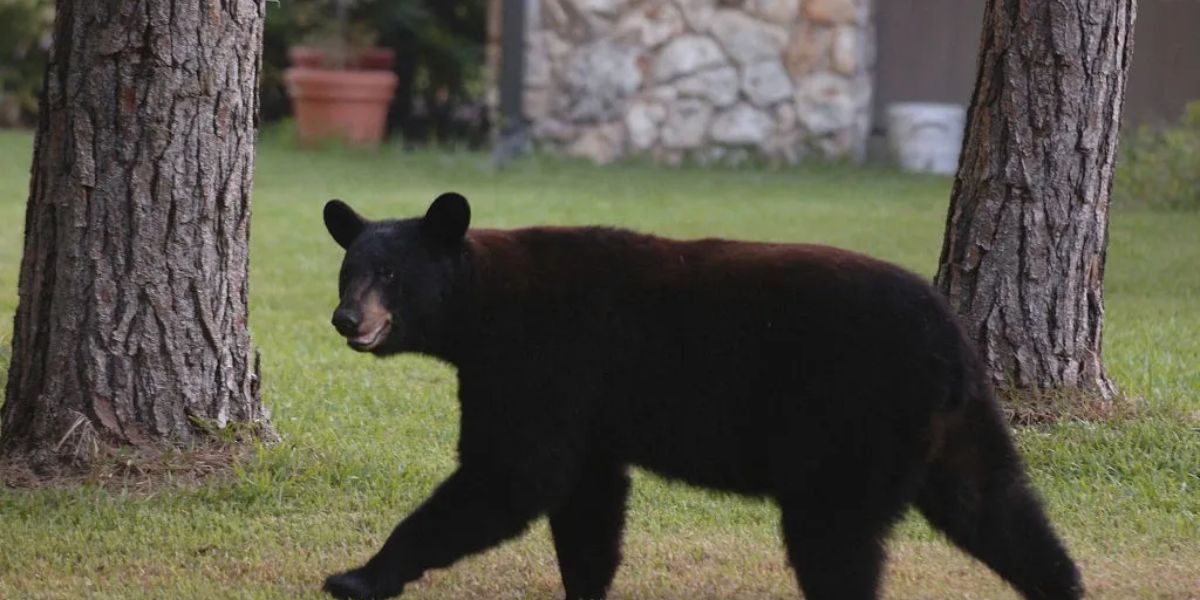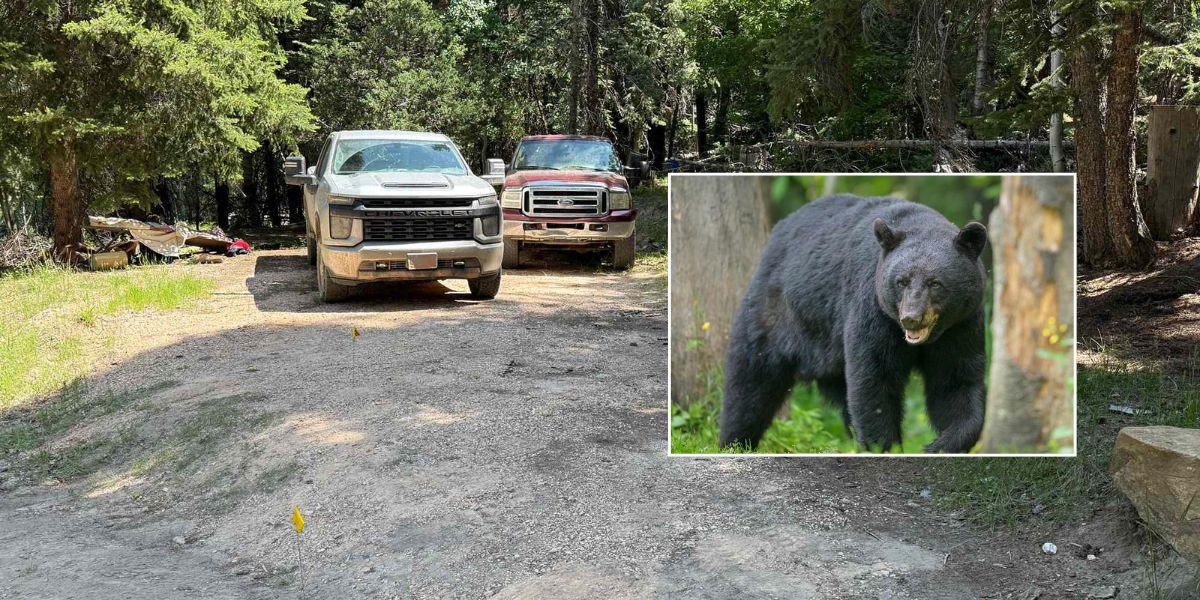The first black bear hunt in Florida since the last one was halted early ten years ago after more than 300 bears were killed in two days, received preliminary approval Wednesday from Florida wildlife officials.
At a meeting in Ocala, the Florida Fish and Wildlife Conservation Commission voted 4-1 to allow a bear hunt in December of this year and every year after that.
The commission also approved the use of up to six dogs to corner the bears. Bear hunting in baited areas and bowhunting, which follows deer hunting regulations, are two possible methods.
In August, there will be a final vote
According to commission staff, the objective is to “begin managing population growth” for Florida’s roughly 4,000 bears.
“Managing population growth is important to balance species numbers with suitable habitat and maintain a healthy population,” according to the staff report.
Billy Woods, the sheriff of Marion County, whose rapidly expanding county hosted the meeting, reported that during the last nine months, his office has received 107 calls regarding bear encounters with people.
However, he noted that this is probably only a small percentage of actual encounters because many people in rural areas don’t report them. Woods stated that he is in favour of the hunt.
“It needs to be regulated and it should be regulated. I think we keep not only our citizens safe but the state of Florida’s citizens safe,” Woods stated to the commission.
Divergent opinions on Florida bear conservation and hunting
Florida is one of only six states with sizable black bear populations that forbids hunting, according to a number of hunters and representatives of outdoor organisations who urged the commission to approve the hunt.
“Bear is a game species. It’s time for us to have some level of bear hunt,” stated Travis Thompson, executive director of the conservation group All Florida.
Opponents of hunting argue that there is insufficient scientific evidence to support bear killing and that the most sensible course of action is to persuade residents of Florida’s sprawling communities to secure trash and take other non-lethal measures to reduce conflicts between humans and bears.
Leslie Carlile, an opponent whose family has lived in Florida for many generations, said, “I implore you to not allow the slaughter of these majestic animals we have in Florida. Trophy hunting is pure evil in my opinion.”
Approximately 75% of the more than 13,000 online comments that the FWC has received have been against the proposal. 170 people registered to speak on both sides of the debate at the meeting on Wednesday.
The commission would “take a step backwards” by approving the bear proposal, according to Janet Osborne, a hunt opponent.
Read Also: Snake Spotted Crawling From Hood of Woman’s Car in Missouri
“The problem is the overpopulation of people,” she stated.
A Florida man and his dog were recently killed by a black bear
Among other things, proponents of the hunt cite the deadly attack on 89-year-old Robert Markel and his dog earlier this month by a black bear in a rural area of Collier County, in south-west Florida.
Additionally, bears are commonly spotted in neighbourhoods that extend into their natural habitat; in 2023, one was even observed wandering onto the Magic Kingdom at Disney World.
Hunting permits were available to anyone who could afford them during the 2015 hunt, which resulted in a chaotic event that was ended days early. Since at least 38 of the 300+ bears that were killed had cubs, the smaller bears most likely perished as well.
This time, a limited, random drawing of permits with a cap of 187 is planned. Only in specific areas of Florida where the bear population is sufficiently high could hunters kill more than one bear per person. The FWC staff stated that neither cubs nor females with cubs would be killed.
Read Also: Train Strikes Family on Railroad Bridge: 2 Adults and 1 Child Killed, Another Injured
Residents of Florida would pay $100 for a permit, while nonresidents would pay $300.
The hunt is scheduled to take place in 2025 from December 6 to December 28. The FWC anticipates a bear hunt in the future, which will take place between October 1 and December 31, pending further research on the impact of hunting on the animal population.
The proposal would allow private landowners who own 5,000 acres (2,023 hectares) or more to implement what the FWC refers to as a “bear harvest programme” on their land. On private property, bears could be hunted at bait feeding stations.



